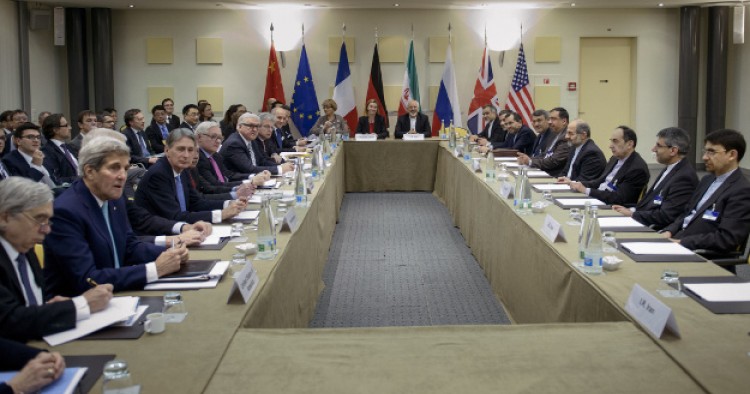Read the full article on LobeLog.
In the past four decades, the greatest achievements of American diplomacy were probably the Camp David Accords and the Dayton Agreement. Camp David led to the end of the perpetual state of war between Israel and Egypt. Dayton ended the carnage of the war in the Balkans.
Both were flawed deals, produced in many tense days of high-stakes, high-level negotiation in which none of the participants got everything he wanted and the United States did not achieve all its aims. Of course they didn’t—that is the nature of diplomacy and negotiation, a fact that seems to have eluded the loudest critics of the tentative Iran nuclear pact.
In the case of the Iran deal, everyone involved understands the treacherous issues that still must be resolved and could crater the entire arrangement. And obviously all of them wanted more out of the Lausanne package. “In a perfect world,” as former Deputy Secretary of State William J. Burns wrote in The New York Times, “there would be no nuclear enrichment in Iran, and its existing nuclear facilities would be dismantled. But we don’t live in a perfect world.” Iran’s negotiators, he said, were “as tough-minded and skeptical as they were professionally skilled.” They were not in Lausanne to give anything away.
In broadest terms, the United States has long had two main objectives in its Iran policy: to prevent Iran from developing nuclear weapons and to discourage Iranian troublemaking and support for terrorism. It is difficult to see how either of those goals would have been brought closer by walking away from the table at the Beau Rivage Palace Hotel.
The Middle East Institute (MEI) is an independent, non-partisan, non-for-profit, educational organization. It does not engage in advocacy and its scholars’ opinions are their own. MEI welcomes financial donations, but retains sole editorial control over its work and its publications reflect only the authors’ views. For a listing of MEI donors, please click here.













